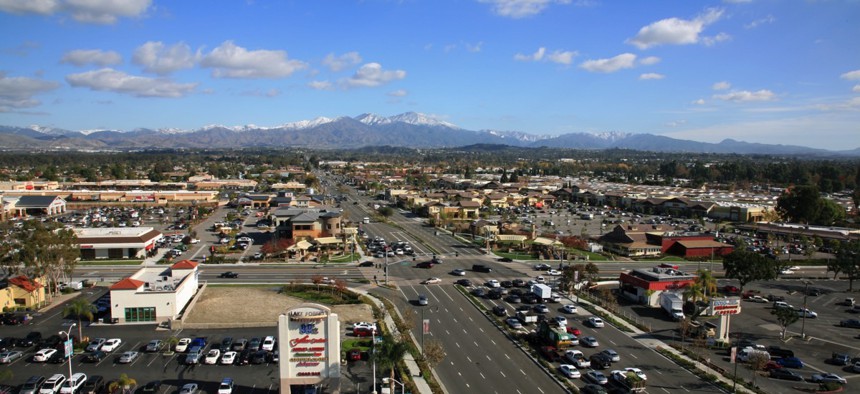California’s Newest Sanctuary City; Higher Taxes for Chicago Families

Santa Ana, California

Connecting state and local government leaders
Also in our State and Local Daily Digest: Ohio economic development tax breaks; Wells Fargo fallout in Charlotte; and Pennsylvania’s debt.
IMMIGRATION | The Santa Ana, California City Council declared itself a “sanctuary city” at its first meeting since Donald Trump was elected president, defying his stance on deporting millions of undocumented immigrants, and is considering cancelling a contract to hold federal immigration detainees in the local jail—the institution’s primary funding. The city boasts a large immigrant community; about half of its 343,000 residents are not citizens. “The other side has been so bold to spout out hatred and division,” said Councilman David Benavides. “I think we need to be bold … and take the stance that this is a sanctuary city. This is a place where our community is safe and … we’re going to stand with them.” [Voice of OC]
TAXES | Chicago families will pay $1,700 more a year on average to the city and Chicago Public Schools than when Mayor Rahm Emanuel took office, once all the tax and fee increases he’s pushed to right city worker pensions woes take effect. [Chicago Tribune]
LAW ENFORCEMENT | Wellesley Police Chief Terrence M. Cunningham made the news last month, when he publicly apologized on behalf of his profession for historical injustices perpetrated against minority communities by the police. Now he is leaving his post in suburban Massachusetts to become the deputy executive director of the International Association of Chiefs of Police. Cunningham has said that his top priority in this new role will be to focus on strengthening police-community relationships. [The Boston Globe]
STATE AND LOCAL RELATIONS | Ohio lawmakers want to use property tax breaks to spur economic development statewide, but local officials oppose Senate Bill 235 arguing the business-backed bill gives too much power to developers at the expense of taxpayers. “As you read it, you realize that it essentially says if you have the intent to develop a site into commercial or industrial use, it doesn’t matter if you actually do it,” said state Rep. Mike Duffey. “If you fail to perform, you don’t have to repay that money at all.” [The Columbus Dispatch]
BANKS | Charlotte City Councilmember LaWana Mayfield attempted to postpone a routine vote on a Wells Fargo Insurance Services contract, criticizing the bank for creating more than 2 million bank and credit cards without customers’ knowledge and historically having “a negative impact on majority-minority communities.” [The Charlotte Observer]
OCCUPIERS | Since the first set of occupiers—who seized Oregon’s Malheur National Wildlife Refuge for 41 days starting Jan. 2—were acquitted, federal prosecutors of a second set want proceedings delayed, while lawyers for the defendants want a pool of 2,000 jurors summoned as soon as possible. A larger pool is needed because many people will have heard of the case by now and not be impartial. [The Associated Press via Capital Press]
DEBT | Pennsylvania’s Treasury Department will provide another $600 million to prevent the state from overdrawing its primary bank account, increasing the deficit-laden government’s debt to $2.2 billion. Four months into the fiscal year, tax collections have failed to meet projections. Human services programs are in jeopardy next year, prompting the treasury to assist for the seventh time since the recession. [The Associated Press via Herald-Mail Media]
IMMIGRATION | Leaders on the Los Angeles City Council are coming up with strategies to protect undocumented residents from facing deportation under President-elect Trump. Council President Herb Wesson has proposed that a new “immigrant advocate” position be created and has asked analysts to study how the “sanctuary city” designation might affect Los Angeles in the future. [Los Angeles Times]

NEXT STORY: Hazardous Needles Pose Difficult Problems for Local Governments




